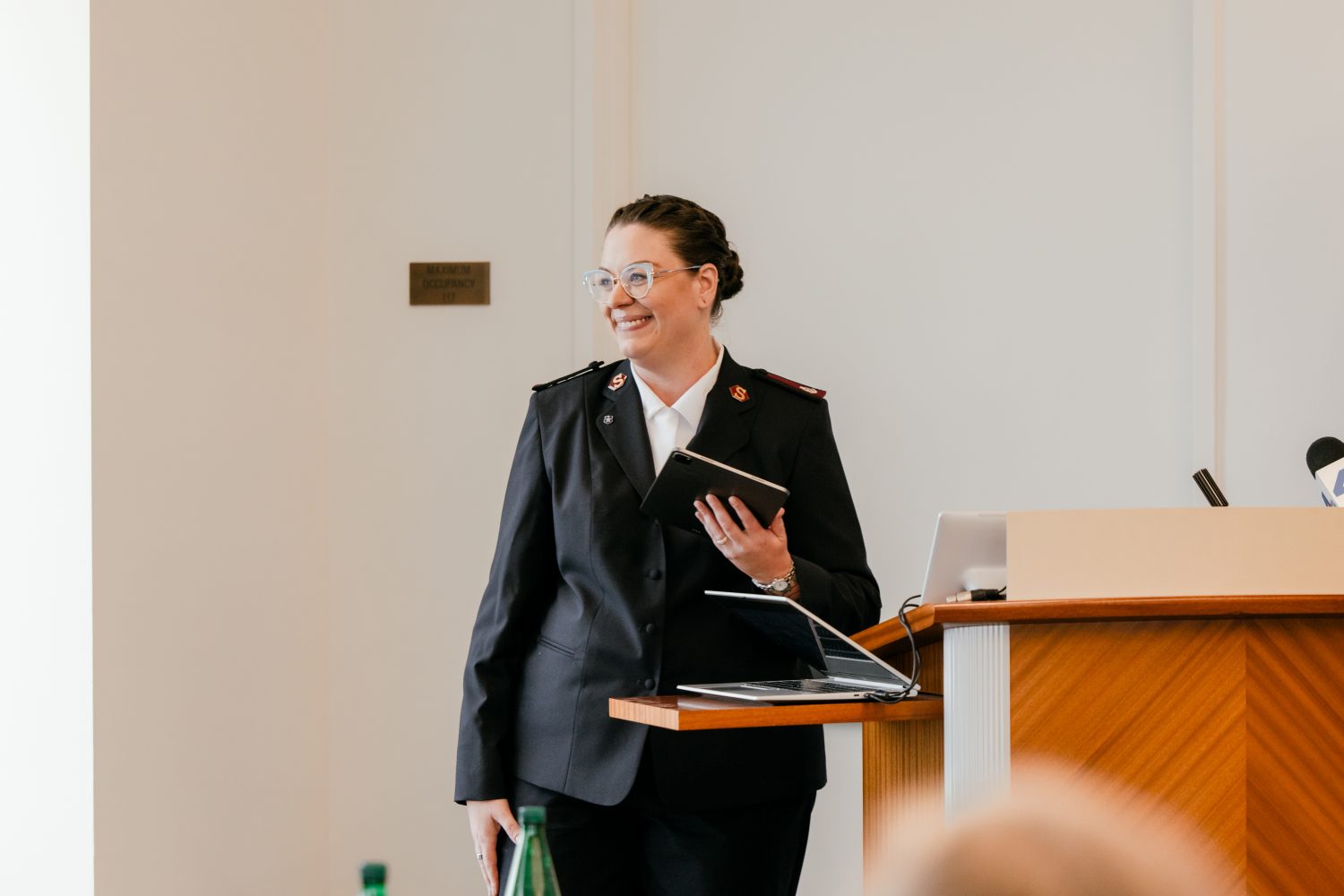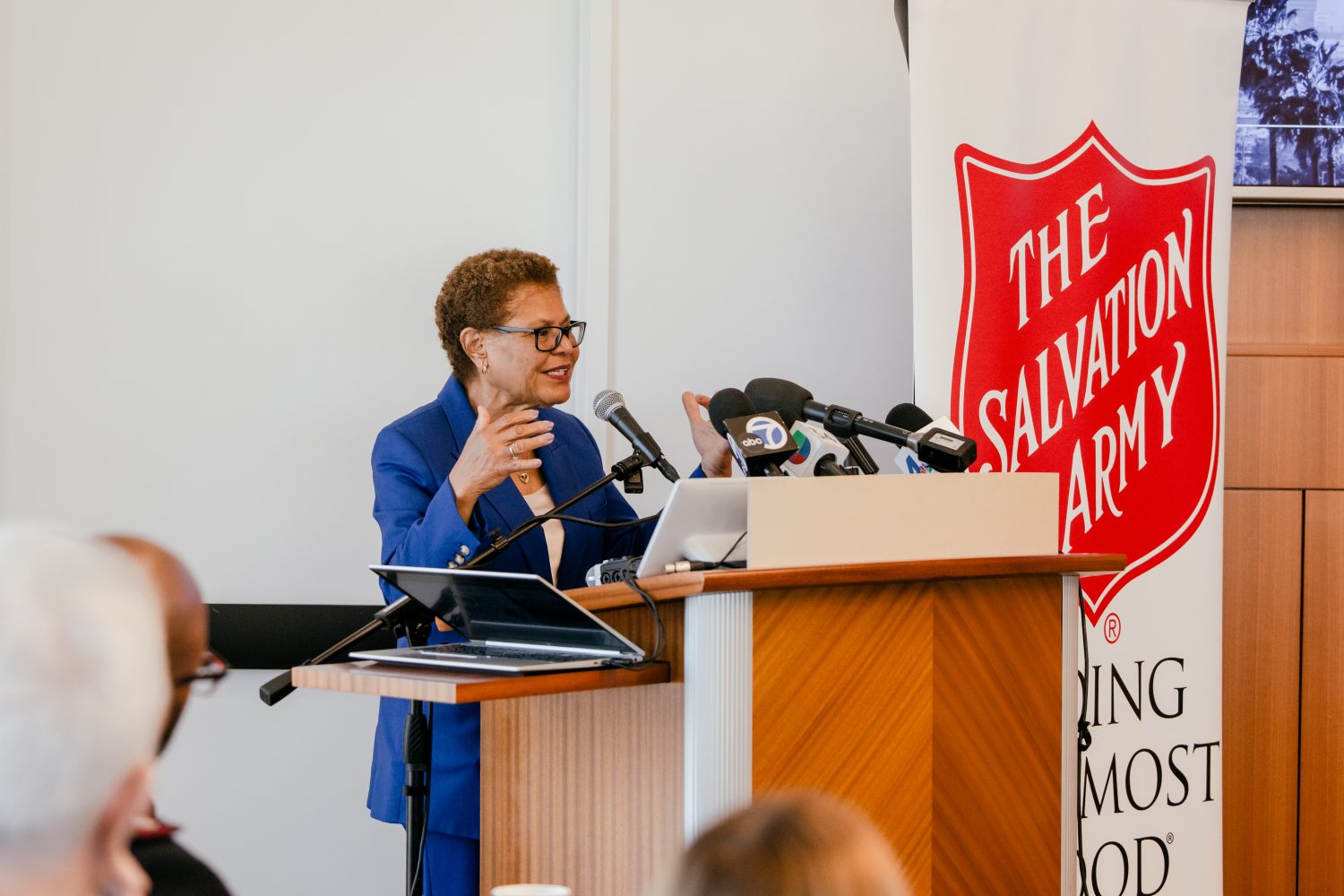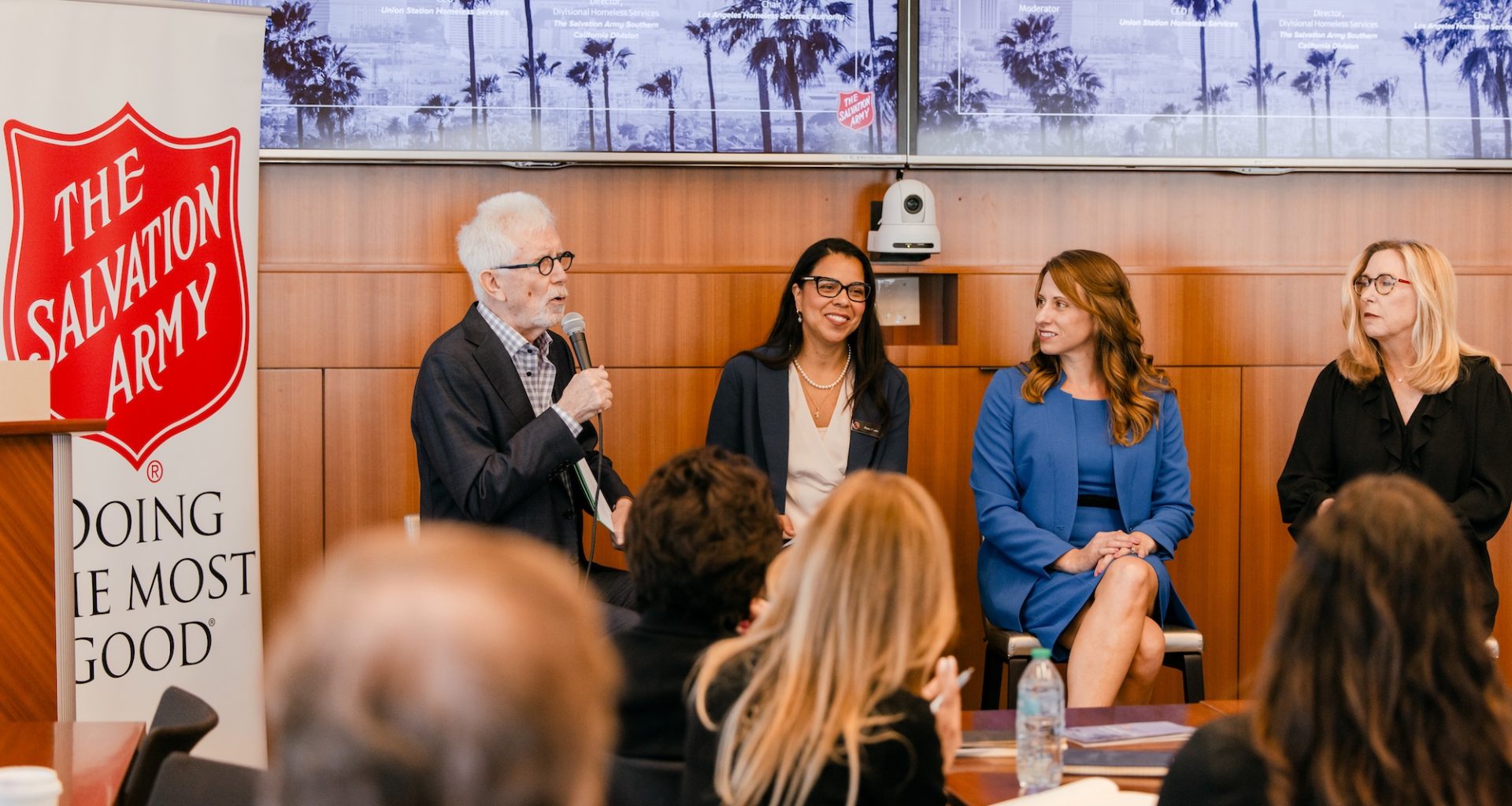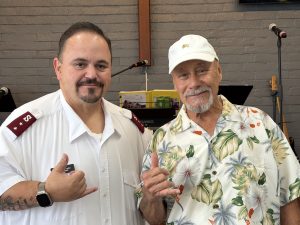Community leaders gathered to discuss homelessness in Los Angeles.
In Los Angeles, where homelessness remains one of the city’s most pressing challenges, The Salvation Army LA Metro brought together community leaders, service providers, advocates and city council members Sept. 9 for its third annual Homelessness Symposium.
This year’s meeting brought a hopeful tone, as the city has experienced a decline in homelessness. Nationwide, however, homelessness climbed 18 percent during the same period.
According to the Los Angeles Homeless Services Authority (LAHSA), the city’s homeless population dropped 3.4 percent in 2025, marking the second consecutive year of decline and the first time in the history of the Greater Los Angeles Homeless Count that homelessness has fallen two years in a row.
The report credits committed collaboration, targeted emergency response, and innovative programming as factors contributing to the decline in homelessness in the county and city.
The symposium highlighted programs and strategies that may be making a difference in the city, including interim housing and approaches that support individuals in gaining self-sufficiency and breaking the cycle of homelessness.

Major Lisa Barnes, Divisional Secretary for The Salvation Army Metro Los Angeles, said coming together with other service providers helps strengthen collaboration and seek new solutions.
“We can achieve far more working together than we ever could on our own,” Barnes said. “It’s not something that’s too big for any of us to make a difference.”
Throughout the meeting, multiple panels brought together experts in the field to share their experiences, ideas and approaches for helping those experiencing homelessness and improving access to services.
Los Angeles Mayor Karen Bass, the keynote speaker, emphasized the urgency of the homeless situation, calling it a humanitarian crisis that demands sustained action.
“We need to have coordinated efforts in place to support people on a one-to-one basis,” Bass said. “And I won’t stop until every Angeleno has a roof over their head, they are appropriately taken care of, and we have a system that will support them long-term.”
She discussed the importance of providing individuals with temporary housing that includes case management.
“We can’t have a pattern of getting people off the streets and leaving it at that,” Bass said. “The goal has to be self-sufficiency; otherwise, the same people will continue cycles of homelessness.”
The Salvation Army’s role
In Los Angeles, The Salvation Army runs over 24 supportive housing programs that provide case management, skills training and resources to promote independent living.
Mayra Chaidez, Salvation Army Divisional Homeless Services Director, joined a panel to discuss how the organization addresses community needs and provides thousands of nights of shelter annually in Los Angeles.
“We focus on exhibiting love,” she said. “We show every one of our participants that they matter, from programs that focus on youth, families and adults battling addiction, we deliver that same support and care.”
She added that the systems go beyond providing shelter, ensuring individuals have access to the resources they need to remain off the streets.
The panel also explored plans and best practices to improve services while ensuring comfort, safety and dignity for those experiencing homelessness.

“These are our neighbors, and we can come beside them and help them navigate that path forward,” Chaidez said.
Working to set people up for success, The Salvation Army’s Pathway of Hope program provides families experiencing homelessness with individualized support and case management to address the root causes of their challenges and work toward lasting solutions.
Chris Doughty, Territorial Director of Social Services Research and Development, said he sees The Salvation Army helping people rebuild their lives.
“Self-sufficiency is one of the main goals of Pathway of Hope,” he said. “Guiding families from crisis toward stability and a future they can shape for themselves.”
The discussions concluded with the recognition that homelessness cannot be solved by a single solution, but through collaborative efforts and innovative strategies across multiple sectors.
“There is still work to be done,” Barnes said. “Collaboration between organizations and continued community support are necessary to help reduce the number of people sleeping on the streets.”
Do Good:
- See how The Salvation Army fights homelessness.
- Get on the list for Good Words from the Good Word and get a boost of inspiration in 1 minute a day with a daily affirmation from Scripture sent straight to your inbox. It’s a bite-sized email to help you start your day with goodness.












